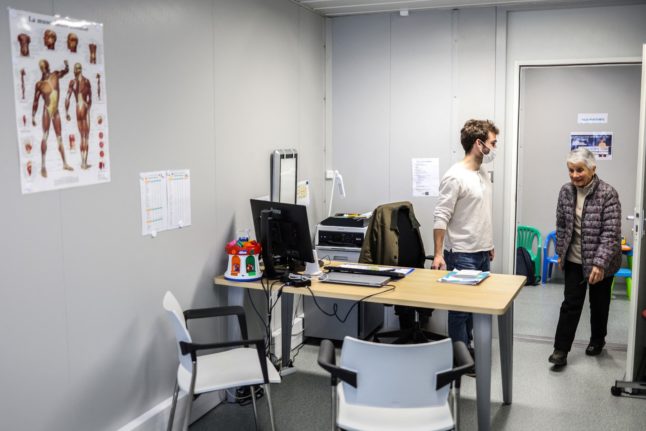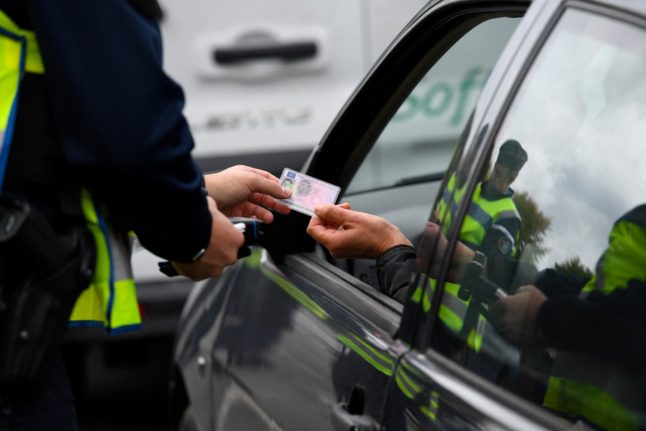In France, half of all GP appointments are available within three days from the time of booking, according to a study carried out by French booking website Doctolib, using data from its platform.
But patients have to wait longer to see specialist doctors, Docotlib reveals.
Half of all appointments with pediatricians are available in less than a week.
This is followed by dentists and midwives, with an average period of 11 days before the first available appointment. Next, there were psychiatrists (16 days), gynecologists (22 days), and ophthalmologists (25 days).
The Doctolib site allows patients in France to book the next available appointments with most GPs and other medical specialists via its easy to use booking platform.
READ MORE: How to use: French medical website Doctolib
As for the specialties where patients have to wait the longest to see a doctor – dermatologists were second to last – with the average person waiting 36 days. The longest waits were to see cardiologists with patients often having to wait at least 42 days for an appointment.
The medical platform said there was an explanation for the significant differences in wait times: “Dermatology typically requires less urgent care, while most emergencies related to cardiology are referred to the hospital.”
As for physiotherapists, the only para-medical profession looked into within the study, half of all appointments were available within less than six days.
What about video consultations?
The study also looked at the use of the ‘tele-consultation’ (video appointments) tool, and it found that opting for this can significantly speed up appointment wait times.
When using the tele-consultation option, the median wait times for GP and pediatrician appointments dropped to just one day. For midwives, it went down to two days, and then four days for gynecologists, seven days for cardiologists, eight days for dermatologists, and 17 days for psychiatrists.
What about regional disparities?
According to OECD data, France has 32 doctors for every 10,000 people, slightly below the OECD average of 37.
However, they are not equally distributed – about a third of France is considered to be a ‘medical desert’, meaning there is a shortage of doctors . It’s usually used to mean places that have a shortage of GPs or family doctors, which can make it hard for patients to find a regular doctor to register with.
READ MORE: MAP: Where in France has the best access to healthcare?
The Docotlib study noted that their findings do not reveal the disparities between France’s départements, and even within départements themselves.
“About 15 départements across France were found to be in a particularly challenging position regarding wait times in comparison to the rest of the country.
“[These areas] saw median waiting times at least twice as long as the average for at least three of the different specialties,” Doctolib noted.
These départements with the longest wait times were Gers, Saône-et-Loire, Nièvre and Territoire de Belfort, Loiret, Cher, Deux-Sèvres, Ardèche, Eure, Calvados, Manche, Loire-Atlantique and Côtes d’Armor, Pas-de-Calais.
Have things got better or worse?
In terms of whether the situation has improved in recent years, well the data shows there has not been much of change.
Between 2021 and 2023, “the median appointment wait times for different specialties either only slightly changed or did not change at all, which is an encouraging sign given the increase in demand for post-Covid care and the decline in the number of doctors available,” Doctolib wrote.
Doctolib carried out the study using data from appointments made using its platform. It is important to note that medical appointments in France can be secured a number of different ways, with other websites available, as well as the possibility to request appointments in person or on the phone.
As a result, GP consultations made via Doctolib accounted for a little under half of the total GP visits in France.
The platform recorded 87.6 million GP visits in 2023 via its website, out of more than 200 million total GP consultations in France.



 Please whitelist us to continue reading.
Please whitelist us to continue reading.
We’re very fortunate to have one (Spanish) GP in our village, and she is excellent, caring, very very hard pressed and works all hours. Still for a non-urgent appointment (eg prescription renewal) wait time is up to two months. If we’re lucky, decent hospital care in some specialties is available in Avranches, 40 km away, but for the best care in others we often have to drive cross-country to Caen, 100+km away.